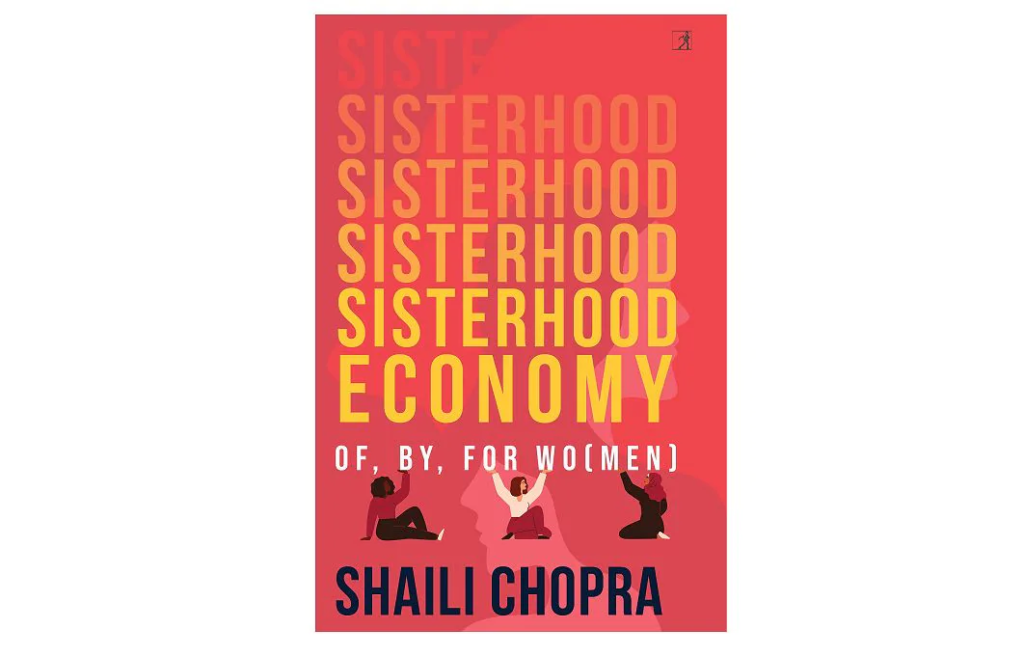
Source: letstalkconsent.com
Most young adults know about the need for consent but struggle to negotiate it in their relationships, finds a recent survey by dating app Tinder.
In fact, 70% of men said it was difficult for them to communicate effectively about consent, leaving partners in uncomfortable situations, found the survey of over 1,000 people aged 18-30 in seven cities. Some 65% of men and women said they struggled with asking for consent, giving it or withdrawing it when dating someone.
Six in 10 said they would be unable to say no to a kiss or turn down an intimate advance even when it made them uncomfortable.
Why? First, because they thought it would hurt their partner’s feelings (36% said this), Second, because they found it awkward to have such a conversation (34%). And, third because they felt such a conversation would result in their partner disliking them (31%).
When consent is violated, one in two have no idea of what to do. One in four said they would rather talk about it with friends than bring it up with a date or partner.
Yet, an overwhelming majority, seven in 10, said consent needed to be discussed more openly with partners and taught formally in schools and colleges.
Consent and the law

Spain passed legislation which states that “only yes means yes” in the wake of a ‘wolf pack’ gang rape in 2016 (Source: AFP/File Photo)
All over the world, the idea of consent in a sexual relationship is viewed through the language of the law.
Earlier this month, Spain passed a law that requires explicit consent for sex: Only yes means yes. The law comes six years after the gang-rape of an 18-year-old woman in Pamplona during the running-with-the-bulls festival. Although the five men were found guilty of sexual abuse and sentenced to nine years in jail, they could not be charged with rape since no violence or intimidation could be proved.
Under the country’s new laws, they would be guilty of rape unless the woman actually articulated ‘yes’ and gave her consent.
In Canada, the stealthy removing of a condom during sex without a partner’s consent was declared a crime earlier this month.
Much of the debate in India on whether marital rape should be criminalised revolves around consent: Can the consent of a wife be assumed in perpetuity after marriage?
This week, while hearing a petition filed by a woman against the law on conjugal rights on the grounds that it violates privacy, autonomy and dignity of individuals, the central government counsel told the Supreme Court that conjugal rights are a legal obligation that can be cut off only through a divorce.

Learning to say no

Source: PTI
But consent goes beyond legal requirements into the etiquette of how you manage your relationships, said Paromita Vohra who in 2015 founded the multimedia project Agents of Ishq to open up conversations arounds love, sex and desire.
A good way to navigate consent, she added, would be to be guided by etiquette or respectfully listening to your partner. “We see consent in terms of yes/no binaries,” she said. “It’s much more layered and complex.”
Between yes and no lies a vast middle ground of ‘maybe’ For instance, you might consent to sex but only with a condom. Or, you might consent to a certain level of physical intimacy and then want to stop – or desire more.
Consent is also something that needs to be ingrained, beyond just sexuality, said Coimbatore-based sexuality educator Swati Jagdish, who goes by the instagram handle, @maya’s_amma.
“Consent is not a part of our childhood years,” she told me on the phone. From forcing toddlers to eat even after they’re full to compelling kids to sing or dance for uncle-aunty who’ve come visiting, parents tend to ignore boundaries and personal space. “The word ‘no’ is not inbuilt in our children’s vocabulary,” she said.
For girls in particular, the idea of obedience runs strong in most families, she continued. Boys look at the power dynamics in the family, whose permission is needed and who can be safely ignored. “When a boy never hears his mother say ‘no’, what do you think he’s going to learn about consent?” Jagdish asked.
Talking about sex
Conversations about sexuality are gradually opening up. “There is far more awareness about consent especially amongst millennials and Gen Zs,” said Kevin Lee, editor-in-chief of Yuvaa that partners with Tinder on its consent project, www.letstalkconsent.com . “They’ve grown up with these conversations online and with shows like Sex Education on Netflix.”
Last month Jagdish conducted five sexuality education workshops primarily for parents who want to learn how to navigate difficult conversations with their children. Vohra said she had recently conducted an in-person workshop for 200 teachers in Mumbai.
Schools still shy away from sex-ed classes that would include conversations around consent. “There’s a lot of backward thinking,” said Jagdish. “But teachers also are struggling to understand and learn.”
Tinder is developing a consent and safe dating curriculum, said communication head Aahana Dhar. “Young people want to talk about consent and sexuality but are hampered by years of social conditioning, the lack of sex education, the role of media and the absence of communication,” she said.
Watch a short film on consent directed by Sonam Nair: We Need to Talk

IN NUMBERS
It will take 300 years for the world to achieve gender parity in the current scenario. Gender disparities are worsening in the face of ongoing crises including climate change, violent conflict, the backlash against abortion and reproductive rights.
Source: UNWomen, Progress on the Sustainable Development Goals: The gender snapshot 2022
REST IN POWER

A huge picture of the late Queen Elizabeth II is displayed at Piccadilly Circus in London on September 9, 2022 (Source: AFP)
She was not an obvious choice as a feminist role model, constrained by her job to never make political statements or really even speak her mind.
Yet, Elizabeth II, England’s longest-reigning monarch, remained relevant on the world stage through seven decades of social, political and cultural change, promoting Britain’s (and her own) brand of the Windsor royalty. She did it with deftness, despite her frequently dysfunctional family, including a middle son who faces rumours of paedophilia that were serious enough for her to strip him of all his titles.
She was also capable of sly subversion when, for instance, she famously took to the wheel to drive the then crown prince of Saudi Arabia around her estate at Balmoral in 1998, a time when women in Saudi Arabia were prohibited from driving.
Her death reprised questions about Britain’s ugly colonial past. Coincidentally, on the day she died, Prime Minister Narendra Modi officially declared India’s colonial legacy dead with the renaming of Delhi’s central vista, the Raj Path (formerly Kingsway) as Kartavya Path (duty’s way).
Yet, once the jewel in the British crown, even India declared a day’s state mourning for the 96-year-old.
Her last official duty on Tuesday, two days before her death, was to invite Liz Truss to assume office as UK’s third woman prime minister.
So enormous has been her impact that one Indian news channel declared in a banner headline: “Charles to be the next queen.”
SEEN AND HEARD
“Right to dress will include right to undress also?”
The Supreme Court’s Justice Hemant Gupta posed the question to the lawyer appearing for girl students of Karnataka who have challenged the ban on the wearing of a head scarf, or hijab, in the classroom.
STORIES YOU MIGHT HAVE MISSED
Blast from the past: the women’s reservation bill
It’s been eight years since a bill to earmark 33% reservation for women in Parliament and the assemblies lapsed. On Monday, based on a petition by the National Federation of Indian Women, the Supreme Court asked the centre for its response on whether the bill could possibly be revived.
Introduced in Parliament in 2008, the bill was passed in the Rajya Sabha in 2010 but, despite loud proclamations of empowering women by nearly every political party, finally lapsed in 2014.
Does the Left have a misogyny problem?
In Kerala, after being snubbed for a second term, former health minister KK Shailaja who won acclaim for her handling of the Coronavirus pandemic has had to turn down the prestigious Ramon Magsaysay award at the behest of the ruling Communist Party of India (Marxist), or CPI-M. The party’s objections stem from the fact that the former Philippine president after whom the award has been constituted was a ‘staunch anti-communist’.
Days earlier, ES Bijimol, a three-time MLA from Kerala wrote a Facebook post about the trauma inflicted by male colleagues. Onmanorama has a report.
In the same week, the CPI (ML) Liberation party removed Kavitha Krishnan from all official posts after she questioned socialist authoritarian regimes.
[Hat-tip to researcher Akshi Chawla who tracks women in politics in her weekly newsletter #WomenLead for raising the question.]
Notice to Gujarat on Bilkis remission
The Supreme Court has issued notice to the Gujarat government on a clutch of petitions challenging the remission of 11 men convicted of gangrape and murder in the Bilkis Bano case. The state government has two weeks to place all relevant records in the case before the court.
AND NOW FOR THE GOOD NEWS
The National Medical Commission, India’s primary medical regulatory body has termed conversion therapy as ‘professional misconduct. The so-called therapy is an illegal practice that members of the LGBTQI community continue to be compelled to undergo in a bid to ‘cure’ them of their sexual orientation.

BOOKSHELF

When TV journalist Shaili Chopra quit her job to become an entrepreneur, everyone she knew thought she had lost her mind. But all she wanted to do was to tell stories, stories of 50% of the country’s population. Stories of women like Rohini, a postgraduate from Satara district who was not allowed by her husband to work after marriage and, so, set up a successful beekeeping business from home. Or of Tripti who was judged for returning to her job 10 days after her twins were born.
The founder of SheThePeople TV is now out with her fifth book, Sisterhood Economy: Of, by, for Wo(men) (Simon&Schuster India, Rs 599) that is a contemporary snapshot of Indian women today.
AROUND THE WORLD

Zahra Sedighi-Hamedani (Left) and Elham Choubdar (Source: Twitter and Tiktok)
In Iran, LGBTQ activists Zahra Sedighi-Hamedani, 31 and Elham Choubdar, 24, have been sentenced to death for ‘corruption on earth through the promotion of homosexuality’, reports Reuters.
In Minnesota, the Hubert H Humphrey school of public affairs has become the first public affairs school in the US to add caste to its diversity and inclusion criteria, tweeted Dalit civil rights organisation @EqualityLabs.
| Were you forwarded this email? Did you stumble upon it online? Sign up here. |
| That’s it for this week. Do you have a tip or information on gender-related developments that you’d like to share? Write to me at: namita.bhandare@gmail.com. |